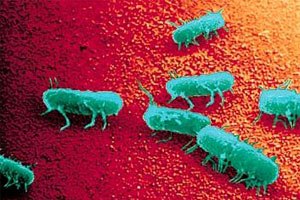Betagro categorises salmonella, up food safety

Betagro Science Centre in Thailand has made a significant breakthrough, using a molecular-biological method of categorising Salmonella, which will allow the agribusiness group to achieve higher standards of food safety.
At the Betagro supported science centre, a team of researchers has done much to advance the technique for distinguishing Salmonella species of high molecular similarity.
This makes detecting infectious diseases in food products increasingly practical, and makes disposing of these pathogenic bacteria more effective.
As a result of the exemplary work by the scientists, a higher standard for food safety has been successfully set and implemented.
Rutjawate Taharnklaew, director of research and development of Betagro Group, said that the science centre has recently categorised and identified two serotypes of Salmonella – S Enteritidis and S Typhimurium.
Two salmonella types
The methods used are multiple-locus variable-number tandem-repeat analysis in conjunction with capillary electrophoresis.
“It is the first time these dual approaches in bacterial serotypes have been successfully implemented in Thailand,” he said.
“The research will also increase the efficiency of bacterial detection in Salmonella-carrying foods – deep into its strains – to improve the way we effectively manage possible contagion.”
The research result has provided Betagro with a useful database on the two Salmonella serotypes for more preventive planning for the entire chicken supply chain, so that the origin of any contagious diseases can be fully traceable.
The result can also be used as an efficiency indicator for production management, hygiene and other aspects of operations, he said.
More cost-effective methods
The next step involves finding possible applications of other faster and more cost-effective molecular biological methods to replace capillary electrophoresis.
The effort is expected to help reduce the cost of disease analysis – a boon for manufacturers faced with the need to undertake large numbers of analyses.
The team consists of four researchers from Betagro Science Centre headed by Dr Mongkol Vesaratchavest, senior researcher and deputy director of Betagro’s Research and Development Centre.












